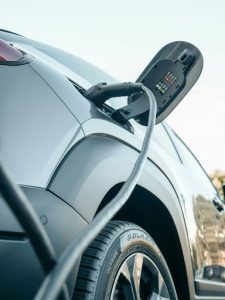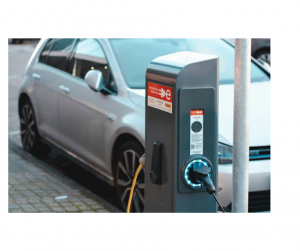
With the popularity of electric vehicles (EVs) continuing to increase, drivers are faced with the decision of how and where to charge their cars. Public charging stations are becoming available in more and more places, or you can have an at-home charger installed at your property. Let’s delve into the pros and cons of each so that you can make an informed decision on the best charging option for you!
Public Charging Points
Pros:
- Convenience: Public charging stations offer convenience for on-the-go drivers, allowing them to charge their EVs while running errands, shopping, or dining out.
- Accessibility: Public charging stations are becoming increasingly prevalent, making it easier for EV owners to find charging options during long journeys or in unfamiliar areas.
- Flexibility: To-go charging eliminates the need for EV owners to install charging equipment at home, providing flexibility for renters or those living in propertie
 s without dedicated parking spaces.
s without dedicated parking spaces.
Cons:
- Limited Availability: In some regions there may be limited availability of public charging points, leading to potential inconvenience for EV owners, especially in rural or less developed areas.
- Waiting Times: During peak hours or busy periods, to-go charging stations may experience high demand, resulting in prolonged waiting times for EV owners.
- Cost: Public charging stations come with usage fees or subscription charges, which can add up over time, especially for frequent users.
Home Charging Points
Pros:
- Convenience and Accessibility: At-home chargers offer ultimate convenience and accessibility, allowing EV owners to charge their vehicles overnight or whenever convenient without leaving home.
- Cost Savings: While the initial installation cost of an at-home charger may be higher, EV owners can save money in the long run by avoiding public charging fees and benefiting from lower electricity rates during off-peak hours.
- Control and Customisation: At-home chargers provide EV owners with control over their charging schedule and allow for customisation of charging settings to optimise energy usage and efficiency.
Cons:
- Upfront Cost: The initial cost of purchasing and installing an at-home charger can be a barrier for some EV owners, especially for r
 enters or individuals on a tight budget.
enters or individuals on a tight budget.
- Limited Range: At-home charging restricts EV owners to charging at their home, so they would still need to use public chargers when away from home.
- Installation Requirements: The total installation cost of your EV charger could potentially not just be the cost of the unit plus the cost of the labour. There are other costs you may have to consider such as infrastructural or electrical adjustments that may be needed.
Ultimately, both public charging and at-home chargers offer distinct advantages and disadvantages for EV owners. The optimal charging solution depends on individual preferences, lifestyle, and driving habits.
The key is to weigh the pros and cons carefully and choose the charging option that best aligns with your needs and circumstances.
Ready to explore your charging options? Contact us today for expert advice and assistance with installing your at-home charger!
